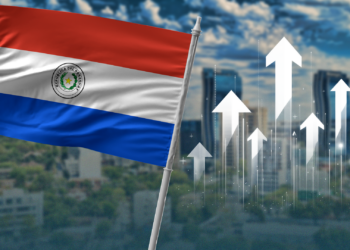Self-styled defenders of liberal democracy cannot tolerate disagreement or even discontent
Is there another country in the world in which you would prefer to live, and if so, why don’t you move there?
A cantankerous pensioner posed this question to me, and insisted that I “Name a country!” to which I could swiftly disappear. He did not accept my loyalty to family and love of familiar places as legitimate reasons for why I would be reluctant to leave. This same man was angry that I had spent the last hour explaining why Generation Z are disillusioned with liberal democracy, and would refuse to fight a war to defend it. It seems to me that telling despondent young professionals “If you don’t like it, then leave,” is not a winning strategy for summoning the sort of patriotism required to invest in their country and enlist in the military. It was Gandalf, not Denethor, who encouraged the men of Minas Tirith to man the ramparts against invading Orcs. But this gentleman’s discomfort with the facts led him to savage me, the messenger, rather than confront the expiry date on his worldview.
For context: I was asked to participate in a panel debate on if liberal democracy is dying, in London’s Frontline Club. Given that my interlocutors were former BBC and CNN employees, I knew I was entering a hostile environment. To illustrate just how establishment the audience was: Christopher Steele, of the eponymous “Russia collusion” dossier fame, was in attendance. His brother-in-law, Stefan Cross opened the event: the same lawyer who set the equal-pay claim precedent which has now bankrupted Birmingham City Council. If the re-election of Donald Trump and rubbish piling up in Britain’s streets was not cause enough for the crowd to reassess their views, then I doubted they would be receptive to mine. But what I didn’t expect was the allergic reaction to me informing them that their love of the post-War liberal consensus is not sustained across generations.
In my opening remarks, I cited recent YouGov/Times polling, which found only 11 per cent of Zoomers (aged 18-27) would fight for Britain, and 41 per cent said under “no circumstances” would they enlist to defend their country. 52 per cent told Channel 4 in January that the UK would be best governed by a “strong man” who could bypass Parliament and elections. In 2022, Onward recorded 61 per cent of 18-34s as supporting “having a strong leader who does not have to bother with parliament and elections”, and 46 per cent favouring military dictatorship. Gen Z consistently feel the political status quo is too sclerotic and has nothing to offer them, and are therefore in favour of various kinds of revolutionary change.
Belief in the permanence of the welfare state has engendered an unprecedented entitlement in older generations.
One might think that those who purport to be “defending democracy” would want to know why its advantages are not so self-evident to their children and grandchildren, who will inherit it. If preserving the social contract matters so much to them, shouldn’t they be the least bit curious as to why under-30s young professionals don’t want to bear the increasing tax burden of their NHS care and pensions? But nobody appeared like the Lorax from the stump of our civilisation to suggest felling every tree in whose shade subsequent generations should sit might be a bad idea.
It seems belief in the permanence of the welfare state has engendered an unprecedented entitlement in older generations. When their successors complain about the cost of subsidising an unsustainable system they will never benefit from, Boomers accuse them of trying to deprive them of provisions they have paid for all their lives. When they express reluctance to be conscripted and killed, they are condescended to as ignorant children who should be so lucky to receive a lesson in European history. Intergenerational noblesse oblige has been so utterly severed that the Conservative party could court Boomers as a client group at the last election by promising to tax their grandchildren to the hilt to quadruple-lock their pensions, then force them to either deliver prescriptions as an indentured servant to ‘are NHS or be conscripted to die in a ditch in Ukraine.
My warning that a generation will not uphold what passes for democracy if it fails to deliver for them was met with such disdain from ex-BBC journalist John Sweeney. In a non-sequitur that I’m sure struck him as a devastating knockout punch, Sweeney asked that I explain my “theory of free speech to the late Alexei Navalny.” His interjection was the political equivalent of telling a hungry colleague “You know, there are children starving in Africa” when they express their craving for lunch. Like Squealer in Animal Farm, Sweeney oinked about the omnipresent threat of Putin to shut down complaints that Keir Starmer is imprisoning people for social media posts. But pointing to crimes committed by the Kremlin does not excuse the British state’s Soviet-esque censorship laws.
Perhaps Sweeney is not aware that scenes from Solzhenitsyn’s Gulag Archipelago occur 33 times a day in the UK. As I said in the debate, Britain prosecuted more people for “grossly offensive” speech, under section 127 of the Communications Act 2003 and section 1 of the Malicious Communications Act 1988, that Russia imprisoned political dissidents before the invasion of Ukraine. Among these >12,000 arrests a year was Sweeney’s fellow Liberal Democrat, councillor Maxie Allen and his wife: arrested on suspicion of harassment and malicious communications, after complaining about their daughter’s primary school in a WhatsApp group. The latest absurd instance was the police warning a deaf man that asking someone to “speak English” could be construed as a hate crime. Others persecuted by police include a vicar, two schoolgirls, and a barrister for joking “My cat’s a Methodist.” In 2022, I was threatened with arrest under the Public Order Act by an inspector who misheard a conversation. Conduct like this is why the judge in Miller v College of Policing compared Britain’s bobbies to the Cheka, Gestapo, and Stasi for recording thought-crimes against members of the public.
Of those imprisoned, Sweeney had never heard of Peter Lynch: the grandfather imprisoned for nonviolent protest during the post-Southport riots, who hung himself in his cell. “What about the people being murdered” in Russia, shouted Sweeney, indifferent to Lynch’s death in a prison system where, as Sky News crime correspondent Martin Brunt said, “any rightwing, ‘Far Right’ protestors landing up in jail can expect a very ‘cold’ reception in jail from what he says are Asian gangs inside prison who are looking out for them.” While not ordered by Starmer himself, Lynch’s death is just an unjust as that of Navalny’s.
After the debate, Sweeney took to X to ask if I thought the late Pope John Paul II would side with me, or with him. I doubt the Bishop of Rome would be pleased by a government that hangs portraits of communists in Downing Street, and persecutes Christians for praying silently or offering consensual conversations within the vicinity of abortion clinics. Sweeney may accuse me of “completely ignoring the serial killing” of Putin’s political opponents, but per our shared Catholic principle of ordo amoris, I intend to continue focusing on how my own home is turning into a tyranny.
Why are those who purport to to defend democracy so content with the current state of free speech in Britain? Because their definition of democracy does not include bothering to consult the voting public for their opinion. When asked at the outset by former BBC journalist Gabriel Gatehouse to define liberal democracy, since it was in the title of the debate, host and fellow BBC stalwart Owen Bennett-Jones offered the following:
It is the defense of free press, independent universities, independent judiciary, all the institutions that we think have guaranteed and created peace and prosperity for the last 80 years and have delivered fantastic benefits to people in the West… That those are the things that are now under threat and are worth defending.
I noted that the people — the demos — feature nowhere within that definition. This is because the modus operandi of these institutions, Bennett-Jones noted, is “fear of fascism.” As Bennett-Jones’ theory goes, “it remains pretty inexplicable” how Germany, “the most advanced country in Europe” voted for Adolf Hitler. In lieu of blaming the Weimar hyperinflation, communist street violence, and sexual libertinism that they’re busy recreating, the belief persists that suddenly, for no reason at all, we are liable to start goose-stepping unless our liberties are curtailed. Hence why the animating anxiety of the post-War Boomer political consensus is: avoid being a Nazi at all costs, even if one’s tactics resemble them.
This mentality is not confined to the Boomer generation, but made contagious to those who benefit from the status quo staying in place. This is why Bennett-Jones defines democracy not as a system that ensures maximal accountability through elected representatives, but by the unelected institutions which curtail the boundaries of acceptable political debate, and afford journalists like him prestige by working for them.
This distrust of the voting public is combined with the false universalist anthropology of liberalism: that all human beings are fungible, swappable blank slates, and therefore all inequality is a consequence of eradicable oppression. This belief entitles ideologically-captured institutions to shepherd the population to an egalitarian utopia, using censorship, behavioural nudging, and lawfare. “Democracy” translates to achieving equality by any means necessary. This is also why the liberal state cannot delineate between the settled people to whom it should owe loyalty and have obligations, and foreigners it affords universal “human rights”.
This inability to draw distinctions between peoples is why Bennett-Jones cited civil disagreements between the English and Welsh in his remote village as the reason why immigration is of no threat to the high-trust cultural homogeneity which enables liberal democracies. When I said that imported Pakistani rape gangs present different and preventable problems, he was swift to move on. (It is noteworthy that Jones helped quash a Pakistani man’s Home Office deportation order, while working as host of the BBC World Service‘s Newshour.)
What this economic dispossession, dissolution of national loyalties, and dismissal of complaints results in is a rejection of democracy as presented. The alternative offered to enterprising young people who object to being treated as tax cattle for state pensions, social housing, and remittances? Move abroad to Dubai, Australia, or anywhere else this ideology already has set its sights on. Anachronistic hand-wringing about how those living under dictatorships elsewhere will not assuage their discontent.
The correct answer to the irritable pensioner’s question as to which country I would prefer to live in is: the high-trust Great Britain you grew up in, not the dystopian Yookay it has become.







